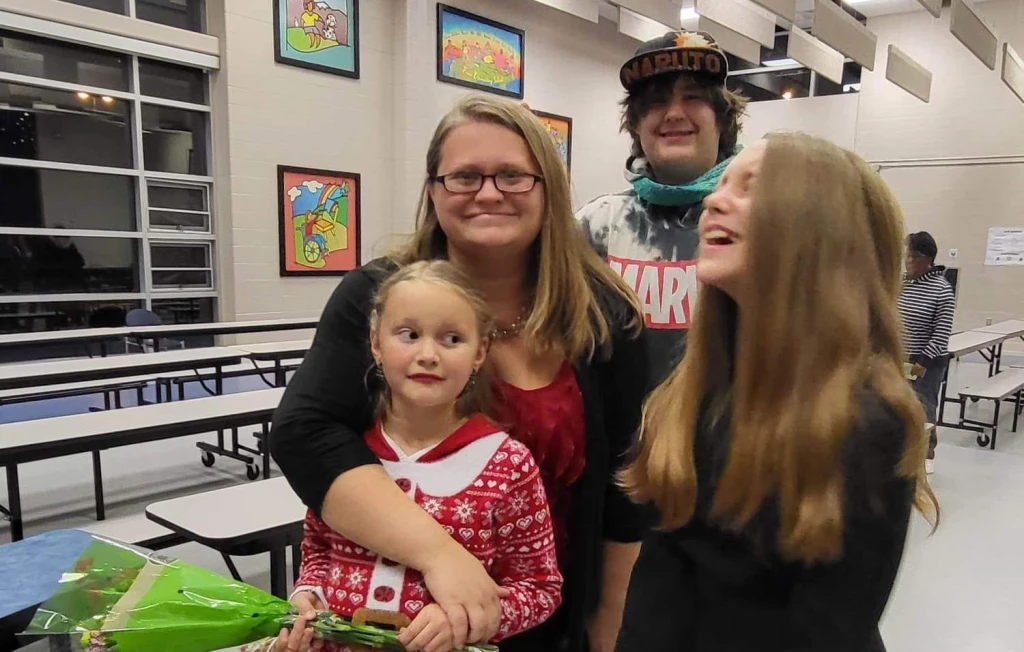
When Jennifer Antonik learned that, because her husband, Ben, died by suicide in September 2021, she and her children’s risk of suicide increased significantly, she knew she had to do something. After his death, Antonik found that there were not many services available to those left behind after someone takes their own life. What came out of her grief was DJ’s Alliance, named for her children, and designed to provide assistance to those who have lost a loved one to suicide.
“It really upset me that we had to travel out of state to get the support we needed. I felt like we shouldn’t have had to,” Antonik said. “I felt that it was a luxury to be able to travel out of state and it was really a luxury we didn’t have. My family has never had a lot of luxuries.”
Antonik stated that she “robbed Peter to pay Paul” in order to take her children to a camp in New Jersey which eventually became a backbone for their healing. Although the camp was a blessing for her and her children, it made her angry that she they had to travel so far just to get the support they needed.
“Anger can be a powerful motivator,” Antonik said. “After talking to some amazing people, some of whom are now on my board, we came up with what we call our “baby project.” We wanted to create care packages for other survivors that would get them through the period right after their loss.”
The care packages have information and supplies that Antonik could not find immediately after her husband’s death. It includes information from the American Foundation for Suicide Prevention, information about the Peer Program she and her board created as well as other information to guide them through their loss.
“When Ben died, an officer came to give us the death notification. We were blessed with the fact he was not home when he did it, if there is any blessing to be found,” Antonik said. “We have board members where that was not the case. But the officer arrived, and I already knew what had happened, but he had to make it formal. He handed me a brochure that I called my [crappy] brochure, the same one they have been giving out for a decade.”
Antonik knew a brochure was not going to be much comfort for her as she navigated through her own grief, the grief of her three children and the trauma that was going to live with them for some time. All she could think about was that she was not going to eat, was barely going to breathe and had no idea how to comfort her children.
“On the back of this brochure is a phone number for victim services and the officer told me to call if I ever needed anything,” Antonik said. “After about a week, I got my head clear enough to call because, when Ben passed, I was only working about ten hours a week and after that, I was not working at all because I couldn’t. My car died the same day he did, and he was the family mechanic.”
Thinking she could get some assistance, Antonik called the number and asked for help, telling the person on the other end of the line she had no idea how she was going to feed her family after the meal train ended.
“They said, ‘well, we can’t help you,’ and I was shocked,” Antonik said. “They further explained that because this was self-murder, their words not mine, they couldn’t’ support us in any capacity. That got my wheels really churning.”
After she launched DJ’s Alliance, Antonik reached out to victim services and asked how that could be changed. She was told that it was a federal funding issue as 80 percent of their funding comes from the federal government. The regulations state that self-harm cannot be supported with federal dollars, something she hopes to have changed. She would also like to see a camp similar to the one she and her children attended in New Jersey in Delaware.
“My youngest was seven when Ben passed and when she went back to school, when she introduced herself to new people, she would say “Hi, my dad is dead.” She just felt it was best to rip that band aid off. The other child could say “okay, do you want to play dominoes?” or they could run away,” Anotnik said. “At camp, she didn’t have to say that because the other kids also had a parent or other loved one who had died by suicide.”
It helped Antonik because she could be in a group of angry mothers who felt the same guilt, shame and devastation at the other parent who chose to end their life. Antonik is also proud of the growing Peer Support her organization has created.
“We put someone who has recently lost a loved one with someone who lost in a similar way,” Antonik said. “We are pattering it off of the Delaware Breast Cancer Coalition peer group. So, we would put a mother with another mother who lost a child to suicide or a sister with someone who lost a sibling. We are also trying to put more emphasis on preventing suicide rather than dealing with it after the fact.”
Antonik and her board are planning fundraisers for the organization which currently does not have a budget or staff. More information about the organization can be found online. There is also a newsletter filled with inspiring stories about the Antonik’s own journey.






